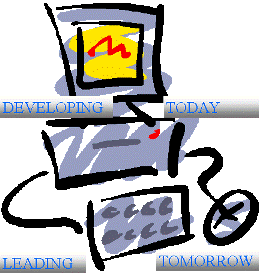Managing Technological Change 9
Direction
††††††††††† How do we deal with change?† All these technological changes can be overwhelming.† To ease this burden we have discussed a transition method that concentrates on easing anxiety, the unfreezing and freezing (Marchewka, 2006).† From a technological standpoint, we have roughly sketched approaches through the COBIT, SEI, and the SANS Institute (COBIT, 2006; Humphrey, 1990; Milroy, 2001).† They all offer a plethora of knowledge that can be employed.† But still what does all this mean?† Our perspective on managing technological change is changing itself.† We are moving from the mechanical grandfather clock clicking of time that we can still sense to the picosecondsí speed of the CPU dazzling our minds beyond compare.† Today, technological change is fueling social development.
††††††††††† Therefore, at these speeds we donít have much of a choice.† Either we manage the change or we pay the consequences.† These are the consequences of stress, anxiety and other human weakness.† At last, we have to slow down for the human involvement whether in personal or professional life.† According to Marchewka (2006), either we manage change or there is confusion and wasted effort.
††††††††††††††††††††††††††††††††††††††††††††††††††††††††††††††††††††††††††††††††††††††††††††††††††††††††††††††††††††††††††††††††††††††††††††††††††††††††††††††††††††††††††††††††††† †††††††††††††††††††††††††††††††††††
Managing Technological Change 10
References
Bridges, W. (1991).† Managing Transition: Making the Most of Change.† New
†
Davidson, P. (2006, May 26 ). Fed cut off phone tax after
108 years.†
Humphrey, W. S.†
(1990). Managing the Software
Process.†
Wesley, Publishing Company, Inc.
IT
Governance Institute (2006).† Control Objectives for Information and
related Technology (COBIT) 4.0.†
Lewin, K. (1947, Volume1).† Frontiers of Group Dynamics.† Human Relations: 5-41.
Marchewka,
J. T. (2006).† Information Technology Project Management: Providing Measurable
Organization Value.†
Milroy, D. P.† (2001).†† Implementing/Re-Implementing Change Control Policies.†
††††††††††† Retrieved
Sandia National Laboratories (2005).† A COBIT
Primer.†
†††
Weber, R. (1982).†
†
Return to Web Site's Index
DELAWARE'S MIDDLETOWN ODESSA AND TOWNSEND AREA
